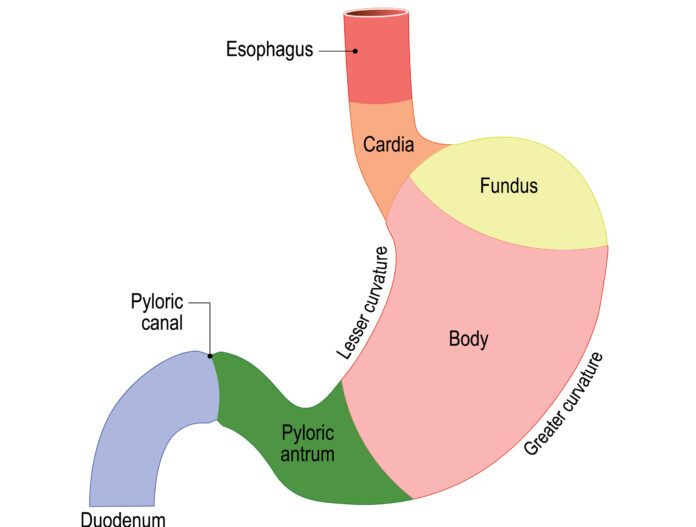In an area in northern China, cancer in the cardia, which is located between the esophagus and the stomach, occurs at high rates, and the cancer type has distinct features compared to Western countries. Together with Chinese colleagues, scientists at Uppsala University have found that the presence of many copies of the ERBB2 gene can be correlated with better prognosis for patients with cardia cancer. The genetic alterations could be due to local dietary habits in the area, according to the research team which published its study (“Focal amplifications are associated with chromothripsis events and diverse prognoses in gastric cardia adenocarcinoma”) in Nature Communications.
“The role of focal amplifications and extrachromosomal DNA (ecDNA) is unknown in gastric cardia adenocarcinoma (GCA). Here, we identify frequent focal amplifications and ecDNAs in Chinese GCA patient samples, and find focal amplifications in the GCA cohort are associated with the chromothripsis process and may be induced by accumulated DNA damage due to local dietary habits,” the investigators wrote.
“We observe diverse correlations between the presence of oncogene focal amplifications and prognosis, where ERBB2 focal amplifications positively correlate with prognosis and EGFR focal amplifications negatively correlate with prognosis. Large-scale ERBB2 immunohistochemistry results from 1,668 GCA patients show survival probability of ERBB2 positive patients is lower than that of ERBB2 negative patients when their surviving time is under two years; however, the tendency is opposite when their surviving time is longer than two years.
“Our observations indicate that the ERBB2 focal amplifications may represent a good prognostic marker in GCA patients.”
Cancer is associated with a range of genetic alterations, e.g., the presence of DNA outside the chromosomes. This extrachromosomal DNA can contain genes that have been amplified into several copies by focal amplification of DNA regions. The researchers found that extrachromosomal DNA and focal amplifications were common in a group of Chinese patients with cancer in the cardia.
“We studied samples from patients in the Taihang Mountains of north-central China, where there is a high incidence of cardia cancer. We think that the extrachromosomal DNA and focal amplifications that we detected could be due to a high degree of DNA damage caused by the substance nitrosamine in the local diet,” said Xingqi Chen, PhD, researcher at the department of immunology, genetics, and pathology at Uppsala University, who led the Swedish part of the study.
When the researchers examined the genes in the amplified DNA, they found a correlation between specific genes and the patients’ prognosis. Focal amplification of the gene EGFR was correlated with worse prognosis while focal amplification of the ERBB2 gene was linked to a better prognosis. When they studied the correlation between the protein encoded by the ERBB2 gene and prognosis they found that survival probability depended on the protein level of ERBB2.


